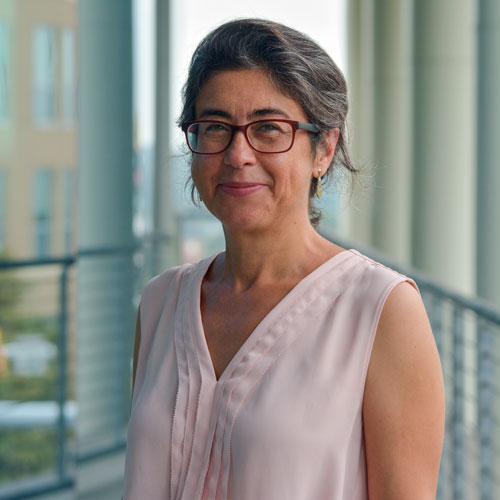
In a perfect world, state agencies and local governments would implement each new policy and program only after rigorous economic analysis that maps out the cost, benefits, potential side effects and hidden implications of choosing one option over another.
That data-driven approach to policymaking is the focus of S.C. EPiC, the South Carolina Economic Policy Center based in the economics department of the Darla Moore School of Business. The center received startup funding last year from the Moore School’s Business Partnership Foundation and recently was greenlighted by the S.C. Commission on Higher Education.

“Our goal is to become the resource in South Carolina for everyone who is trying to make policy changes,” says Orgul Ozturk, a professor and chair of the economics department and director of S.C. EPiC. “We’ll analyze their ideas, do the research and make calculations that can tell them the ramifications of what they want to do. We translate our research into something that is relatable and comprehensible for people who are not economists.”
Ozturk, who joined the Moore School faculty in 2006, has extensive economic analytical experience in labor, health, education and public policy. The Economic Policy Center also draws on a leadership team that includes Jessica Brown, Jason DeBacker, Bill Hauk, Beth Watson, Lindsey Woodworth and several other University of South Carolina economics faculty members.
“We're going to provide clients with cost-benefit analysis and return-on-dollar analysis,” Ozturk says. “We’ll write these reports for whomever wants more data-driven, policy-making ability. We're going to equip them with that power.”
Ozturk points to an ordinary example in the education sector for the type of economic analysis in which the center can assist. Suppose a school district wants to improve its students’ math readiness and is choosing between two programs, she says. Either program will produce results, but how well?
“With a new medicine or new type of treatment, there is likely going to be some positive effect, but the perspective we bring to table is, ‘Is it going to be worth it?’ What’s the opportunity cost of choosing one thing over another?”
“We can find examples of that particular program that’s been implemented in another state, and we can estimate the results it will produce for each dollar spent,” Ozturk says. “Then we can project what the improved math results will mean for students. Will they be more likely to graduate high school and attend college? Will those better math results imply higher wages 10 years down the road? Will they become more attached to the labor market?”
The goal with such analyses is to go beyond mere correlation, Ozturk says, and determine as much as possible the actual causal effects of a proposed policy or initiative. The center is working with the S.C. Department of Education now to study chronic student absenteeism and career technical education.
“This is something I’ve wanted to do for a long time, and the education department is interested in it, too, so we’re working with them to bring that type of analysis to their discussions,” she says. S.C. EPiC is also working with the Education Oversight Committee, an independent nonpartisan group appointed by the legislature and governor to enact the S.C. Education Accountability Act of 1998.
In addition, Ozturk is exploring opportunities for economic analysis with the S.C. Brain Institute and the Center for Autism and Neurodevelopmental Disorders.
“With a new medicine or new type of treatment, there is likely going to be some positive effect, but the perspective we bring to table is, ‘Is it going to be worth it?’ What’s the opportunity cost of choosing one thing over another?” Ozturk says.
In addition to economics faculty members, S.C. EPiC will involve graduate and undergraduate students. A master’s course in economics that emphasizes hands-on learning will integrate with the center’s research projects. The center’s revenue from client fees will also support the Econ Scholars program, which provides experiential learning for undergraduates, Ozturk says.